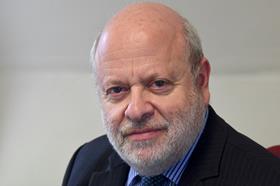This article is about the Israel-Hamas war, but only one aspect of it: whether legal professional organisations should issue statements about it.

In other words, this is not about the rights and wrongs of either side’s actions, about moral equivalence or its lack, about international law, the previous history and the current unfolding, or basic humanity.
I question only whether legal professional organisations should give their opinions on the Israel-Hamas war.
I have been able to track down the following legal organisations which did:
- International Bar Association, supported by the Law Society of Scotland
The Law Society did not issue a statement. (Yet it did issue a statement on the Russian invasion of Ukraine last year, citing solidarity with the Ukrainian bars, and condemnation of the Russian Federation and its contravention of international law. Was this different because it was in Europe?)
In addition, just for completeness, although it does not raise the same questions, hundreds of lawyers from top US and UK law firms have signed a document condemning Hamas’s mass terror in Israel. Law student bodies on US campuses have been caught up in harsh division over who should be blamed for the Hamas attack.
But should the bars and other legal professional organisations have issued any statement at all?
As to their content, they all condemned the Hamas attacks in the strongest terms.
The IBA gave legal advice to both sides: ‘taking of hostages, including women, children and the elderly, are crimes in violation of human rights and humanitarian law’, and they ‘must ensure that civilian populations are shielded from harm and that military actions are conducted with a clear commitment to the international legal principles of distinction and proportionality’.
The ABA said that two wrongs don’t make a right: ‘Israel and the Palestinians have had long-running disagreements and differences, but that in no way justifies the actions of Hamas’.
The New York State Bar Association and the Canadian Bar Association focused only on the actions of Hamas, although the Canadians did end with a call ‘upon all parties to spare the lives of innocent people’.
Of all of them, I liked the Bar Human Rights Committee’s the best, because it did not pretend that it was a player on the world stage which deserved to be heard, but principally supported the existing statement of the UN High Commissioner on Human Rights, Volker Türk, who clearly has an important official role in the war.
I do not think that legal professional organisations should be issuing statements on world events which do not directly affect lawyers, no matter how grave the event (and this is a particularly grave one).
If a group of lawyers, or the judges and courts, had been victims in their professional capacity on either side, I would fully support a statement.
But lawyers outside the war zone are concerned in this matter in the same way as all citizens. It is not a specifically lawyer matter. Yes, wars raise questions around international law, but it is not the usual role of bars to give unsought legal advice to parties in a dispute. There is something absurd about a bar doing so when those whose role it is – governments and the United Nations, for instance – are busy carrying out their proper role in any case.
It might be argued that the war is a question of justice, in which bars have a stake. But the origin of the war is itself so contested. Any bar is likely to have members with views from either side, and plenty with views down the middle. Some will urgently want the bar to make a supporting statement. Others will be equally strongly of the opposite view. In other words, the question of where justice lies is probably not agreed among the membership.
This is an ongoing war. The opening event was beyond horror. But further terrible events are likely to take place on both sides, as we follow day by day.
That is why I support the Law Society’s decision not to issue a statement. The precedent of its Ukraine statement may raise questions – as it did with the Football Association’s decision not to light the Wembley Arch in Israeli colours, in line with its practice after other serious international incidents.
To avoid accusations of hypocrisy, or of siding with one or other player in a complex history, or of overlooking genocide, ethnic cleansing or other terrible crimes, statements should be issued about international events only when they specifically affect lawyers. I know that there are arguments about this war affecting us all, and involving international law. But the line should be drawn at direct effect on the legal professions.
Jonathan Goldsmith is Law Society Council member for EU & International, chair of the Law Society’s Policy & Regulatory Affairs Committee and a member of its board. All views expressed are personal and are not made in his capacity as a Law Society Council member, nor on behalf of the Law Society































6 Readers' comments